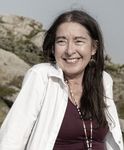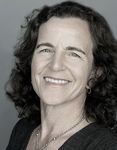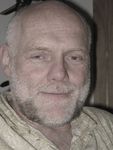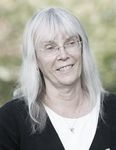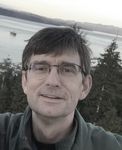VIRTUAL SERIES APRIL 2022 - April 7 - Living with Change: Discussing Future Challenges and Opportunities - Northwest Natural Resource Group
←
→
Page content transcription
If your browser does not render page correctly, please read the page content below
VIRTUAL SERIES
APRIL 2022
April 7 – Living with Change: Discussing Future Challenges and Opportunities
Prof. Klaus J. Puettmann is Edmund Hayes Professorship in Silviculture Alternatives in the
Department of Ecosystems and Society at Oregon State University. He received a Forest Science
Diploma from the Albert-Ludwig University, Germany and Silviculture and Forest Modeling Ph.D.
from Oregon State University. He was on faculty at the University of Minnesota before coming to
OSU in 2001, with extended sabbatical visits as DFG Mercator Guest Professor at the University of
Freiburg and Charles Bullard Fellow at Harvard University. He has been working on projects
related to managing forests for a more balanced suite of ecosystem services and increase their
adaptive capacity in the context of global change.
April 14 – The Co-evolving Story and Stewardship of Northwest Forests
Seth Zuckerman has spent the last 25 years as a practitioner in West Coast forests and watersheds, and as a writer,
telling the stories of people’s relationships with the rest of the natural world. His roots are in northern California,
where he directed the Wild and Working Lands program for the Mattole Restoration Council, collaborating with
private landowners in realms that included light-touch timber harvest, fire hazard reduction, and invasive species
control. Seth holds an A.B. in Energy Studies from Stanford University and an M.S. in Energy and Resources from the
University of California. He came to the Northwest in 2013 in search of steadier precipitation and is now the Executive
Director for Northwest Natural Resource Group.
Lynda V. Mapes is a reporter at the Seattle Times, where she specializes in coverage of the
environment and Indigenous cultures and governments. Over the course of her career, she has
written six books including Witness Tree, exploring the human and natural history of a
single,100-year-old oak, and has won numerous awards, including the international 2019 and
2012 Kavli gold award for science journalism from the American Association for the
Advancement of Science.
Brenda McComb, PhD is a retired Professor in the OSU Department of Forest Ecosystems and
Society. She previously served on the faculty at the University of Kentucky, University of
Massachusetts Amherst, and OSU. She also served as a Chief of the Watershed Ecology Branch
in Corvallis for the U.S. EPA. Brenda holds a BS and MS from the University of Connecticut, and a
PhD in Forestry from Louisiana State University. She continues to advise graduate students
working on forest habitat selection studies, is a consultant on forest management issues, and
serves on the Oregon Board of Forestry and the Oregon Watershed Enhancement Board.April 21 - Diversifying Revenue Streams & Values: What’s the Same & What’s Changing?
Gregory Ettl is Director of the Center for Sustainable Forestry at Pack Forest in the University of
Washington’s School of Environmental and Forest Sciences. As Director he oversees
management of a 4,300-acre working forest, as well as research, education, and outreach
activities. His research focuses on sustainable forestry including silviculture, ecophysiology,
ecosystem services, forest responses to climate change, agroforestry, and forest ecology.
Ben Deumling grew up in and has worked in the Oregon forest industry his
entire life. He manages the family-owned Zena Forest, a 1,300-acre tract of
forest in the heart of the Willamette Valley. He also runs Zena Forest Products, which is an onsite
sawmill and millwork shop that processes hardwood logs into high quality lumber and flooring.
Ben has been actively engaged in forest policy matters for many years and holds a bachelor's
degree from Whitman College where he studied natural resource policy in the western U.S.
Casey Fisher is Senior Area Manager of Carbon, Energy, and Ecosystem
Services for the Value Added Services team at Manulife Investment Management Timberland
and Agriculture. Casey’s role is to maximize natural resource investments beyond traditional
revenue streams through innovative and sustainable ventures such as: initiating carbon banks;
renewable energy and ecosystem service projects; monetizing enhanced wildlife habitat;
negotiating leases and mineral agreements; developing new recreation opportunities; and
expanding markets for timber by-products.
Erin Kelly Erin Kelly is a professor in the Forestry Department at the newly named Cal Poly
Humboldt (previously Humboldt State University). Kelly teaches policy and economics courses,
and research interests center on the human dimensions of forestry, including landowner
management objectives, forest policies and regulations, rural community well-being, community
forests, and carbon offset markets. Kelly completed a PhD at Oregon State University in 2010,
then moved to Cornerbrook, Newfoundland for a post-doc for two years. Kelly arrived in
Humboldt in 2012 and has been there since, surrounded by towering redwoods and hemmed in
by fog.
Dr. Cristina Eisenberg is courtesy faculty at Oregon State University (OSU) in the College of
Forestry and an Outstanding Alumna and Alumni Fellow at that school. A Native American and
Latinx ecologist of mixed Raramuri and Western Apache heritage, she is the principal
investigator on two multi-year projects within Indigenous communities: the Kainai First Nation in
Waterton Lakes National Park, Alberta, Canada and the Kainai Reserve; and the Fort Belknap
Indian Community, Aanniiih and Nakoda Tribes, Montana. These project braid Traditional
Ecological Knowledge with Western science to find ecocultural restoration solutions. BLM funds
her work in Fort Belknap, in partnership OSU and the Society for Ecological Restoration. She is a
Smithsonian Research Associate and the former Chief Scientist at Earthwatch Institute, where she oversaw a global
research program prioritizing ecological restoration, climate resiliency, social justice for Indigenous peoples, and
sustainable natural resources production. Dr. Eisenberg serves on the Board of Sustainable Northwest and on several
other boards and advisory councils. She works to help build government-to-government partnerships with Tribal
Nations and Federal agencies in a manner that respects sovereignty and treaty rights and advances social and
environmental justice. She is the author of numerous journal articles, books, and book chapters.April 28 - Working Together: New Partnerships in Forest Ownership and Conservation
Wendy Gerlach is a lawyer in private practice with experience including forest-based
conservation finance and nonprofit advising. She has advised clients on conservation easements,
land acquisitions, carbon projects, and land trust operational issues. She also spent many years
as a corporate, estates, and tax lawyer advising on finance and business. In that capacity, she
worked with firms such as Thede, Culpepper in Portland, Novartis Pharmaceuticals AG in
Switzerland, Ernst & Young affiliate ATAG AG in Switzerland, and Ropes & Gray in Boston. She is
a graduate of Princeton University and the University of Washington School of Law and is a
board member of Columbia Land Trust and the Oregon League of Conservation Voters.
Tom Tuchmann is President of US Forest Capital, LLC, an advisory services company based in Portland, OR. In this
role, Tuchmann has helped raise $273 million in conservation and ecosystem service funding that has conserved
165,000 acres of private working forestland. His previous roles include Western Director and Special Assistant to the
U.S. Secretary of Agriculture, Director of the U.S. Office of Forestry and Economic Development, and lead staff for the
Senate Agriculture Committee. He has also served as Director of Resource Policy for the Society of American
Foresters, and as an adjunct professor at the Northwestern School of Law at Lewis and Clark College. Tuchmann
currently serves on the boards of Sustainable Northwest and Forest Park Conservancy. He is a forestry graduate of
Northern Arizona University and earned a master’s degree in natural resource policy from Pennsylvania State
University.
Kaola Swanson is deeply committed to the concept of the radical middle and finding practical
solutions to balance multiple outcomes. Before joining Sustainable Northwest, Kaola was the
Oregon Program Director for Pacific Forest Trust, where she worked to promote policies and
projects for the benefits of wood, water, wildlife, and climate. Her earlier work as Associate
Conservation Director at The Freshwater Trust focused on developing market-based programs to
increase the pace and scale of freshwater conservation in the Pacific Northwest. A native of North
Carolina, her love of western forests is rooted in her experience living and working in the Western
Cascades. Kaola has a bachelor’s degree in Environmental Science from University of Oregon and
a master’s degree in Environmental Management from Duke University.
Cherie Kearney has been a conservation leader with Columbia Land Trust for 25 years, helping
grow the Land Trust from a small, local non-profit to become a regional land trust serving 250
miles of the lower Columbia River in Oregon and Washington. Driven by her passion for natural
resources and for the communities who rely on them, Cherie looks for forest conservation solutions
that address both. She most recently served on the boards of World Forestry Center and
Washington Association of Land Trusts. Other dedications to her longtime Washougal community
include St. Anne’s Episcopal Church and West Columbia Gorge Humane Society. She served in the
Peace Corps in central Africa, is a graduate of Washington Ag/Forestry Leadership Program, holds
a master’s degree in public administration, and a B.A. in psychology and religion from Linfield College.
Joe Kane served as Executive Director of the Nisqually Land Trust from 2005-2020 and vice-president of the
Washington Association of Land Trusts from 2010-2014. He is now General Manager of the Nisqually Community
Forest, the largest nonprofit community forest in the state and the first in the Puget Sound region. He is also the
author of Running the Amazon, the story of his role in the expedition that made the first source-to-sea navigation of
the Amazon River – a 4,200-mile, six-month journey by raft, white-water and sea kayak — and Savages, about his
travels in the Ecuadorian Amazon with the Huaorani people and the battle to protect their homeland from oil
development. His work has appeared in The New Yorker, National Geographic, Outside, and many other publications.You can also read



